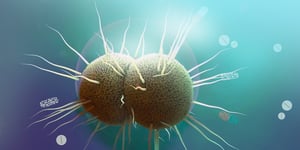Sexually Transmitted Infections affect more than one million new people every day.
Sexually Transmitted Infection (STI) is an infection of the genitourinary system transmitted through unprotected sexual contact infecting more than 1 million new people every day worldwide. While more than 30 different bacteria, viruses, and parasites are known to cause STIs, eight pathogens, including the causative agent of gonorrhea, Neisseria gonorrhoeae bacterium, are linked to the greatest incidence of STIs. The progressive development of drug resistance to many commonly used antibiotics to treat gonorrhea is highly concerning.
Amidst the rise of multidrug-resistant (MDR) strains threatening current treatment options, the discovery of new inhibitors specific for gonorrhea enzymes with the potential to pave the path forward in treating multi-drug resistant gonorrhea is highly encouraging. Recently, scientists from MIT reported the discovery of two compounds, PTC-847 and PTC-672, that specifically target N. gonorrhoeae and its MDR isolates, but not other bacteria, with the potential to become a single pathogen-specific antibiotic against gonorrhea.
While such discoveries are exciting with huge potential for the future, as of now, the use of cutting-edge diagnostic tests like Acutis Reveal™ STI can accurately and rapidly detect common STI pathogens including N. gonorrhoeae, is the way to diagnose it promptly and treat them effectively to minimize the mounting AMR.
The full article can be found here >> Drug Discovery News
